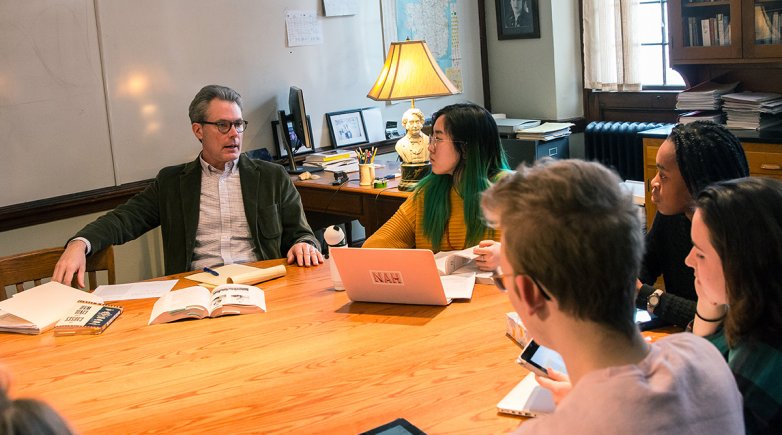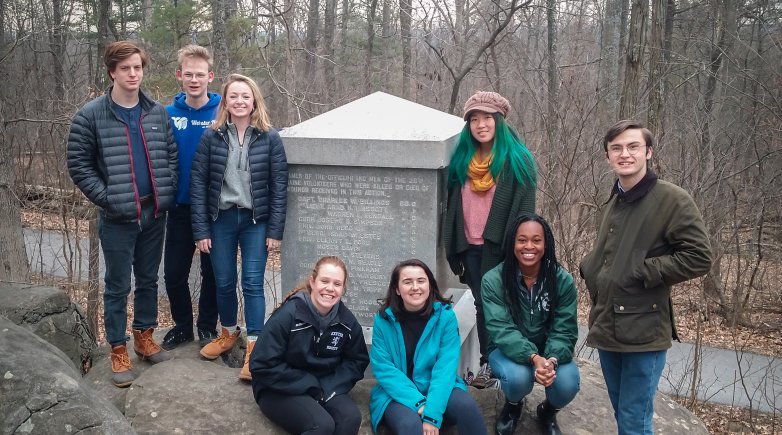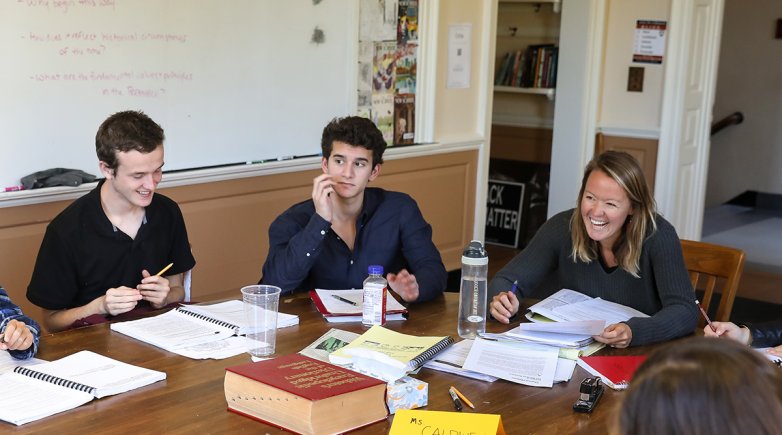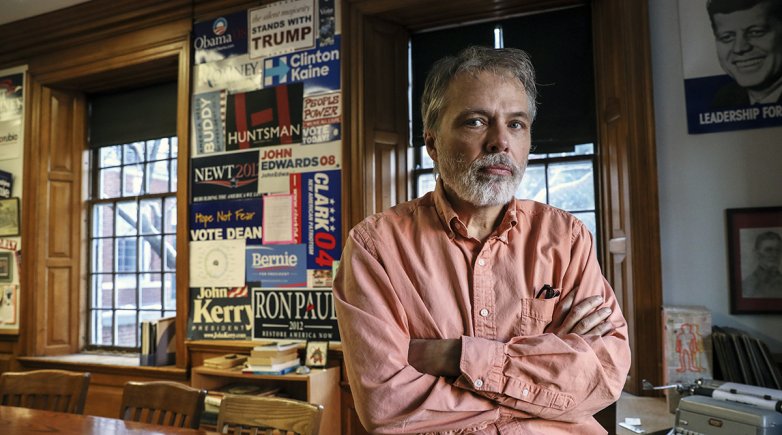McConnell makes it a priority to present modern and ancient history in new contexts, and in ways that appeal to students of different ages. “I want the faculty to be thinking about the relationship in historical thinking between first-year students versus seniors,” he says. In middle- and upper-level courses that explore issues that transcend centuries, such as the global history of violence or war and peace, students, McConnell says, can “see how some of their earlier ideas about history have changed. It’s critical to the world they inhabit.”
The Harkness pedagogy is key to establishing these ideas. “Harkness is essential to developing habits of the mind, through questions about readings, questioning authors’ ideas and drawing distinctions,” McConnell says. Using technology to enhance writing and research projects is also a priority. “We need to think about our use of digital mediums as a tool for humanities research and what that means for Harkness,” he says. “We want students to learn methodology to think historically. It’s the most important thing we can do for them.”
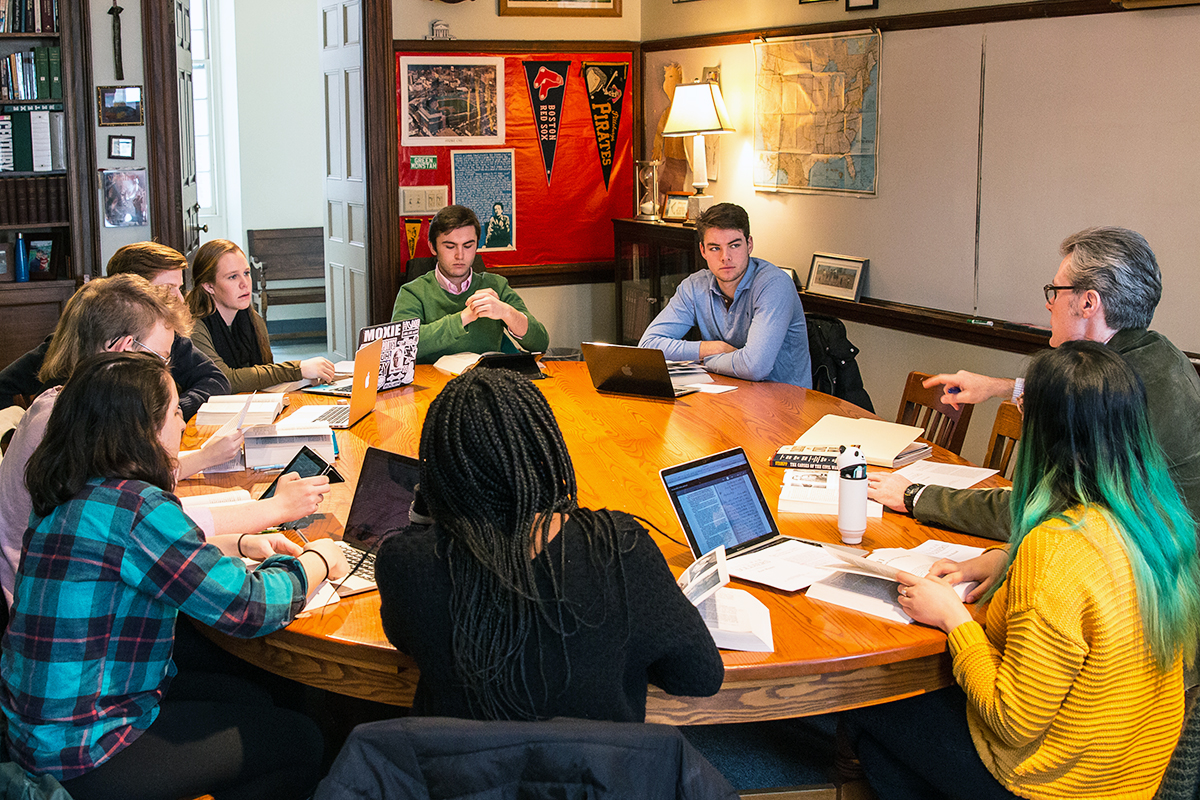
Department quick takes
On-the-ground learning
In McConnell’s course "A People’s War: Digital Humanities in the Study of America’s Civil War Era," students gain hands-on experience as historians. Classes have traveled to Gettysburg, the National Archives and other sites to read diaries, letters and other Civil War-era primary sources. This onsite research is then shared with the Killed at Gettysburg project, an effort to collect thousands of soldiers’ stories for historical reference.
Student research
Under the guidance of faculty, seniors research and write scholarly papers on wide-ranging topics of their choice. Papers have investigated such diverse subjects as the repression of Uighurs in China; paintings and drawings from a Nazi concentration camp in Czechoslovakia; the 1745 Highlands uprising in Scotland; and indentured servitude in 17th-century Exeter, New Hampshire. Young researchers access archives located around the country, from Harvard University to the Library of Congress, in support of their projects.
Faculty thought leaders
Instructors like McConnell pursue academic projects that make them better teachers. McConnell recently received a fellowship to attend a teachers’ conference sponsored by the National Endowment for the Humanities. “As a 19th-century historian influenced by Henry David Thoreau, this was an opportunity to exchange ideas with the best Thoreau scholars,” he says. “It was thrilling.” He is currently writing a multi-volume book tentatively titled “A Time-Stained God: Spiritual Lives and Civil War Deaths and the Violent Remaking of Religion in America.”
